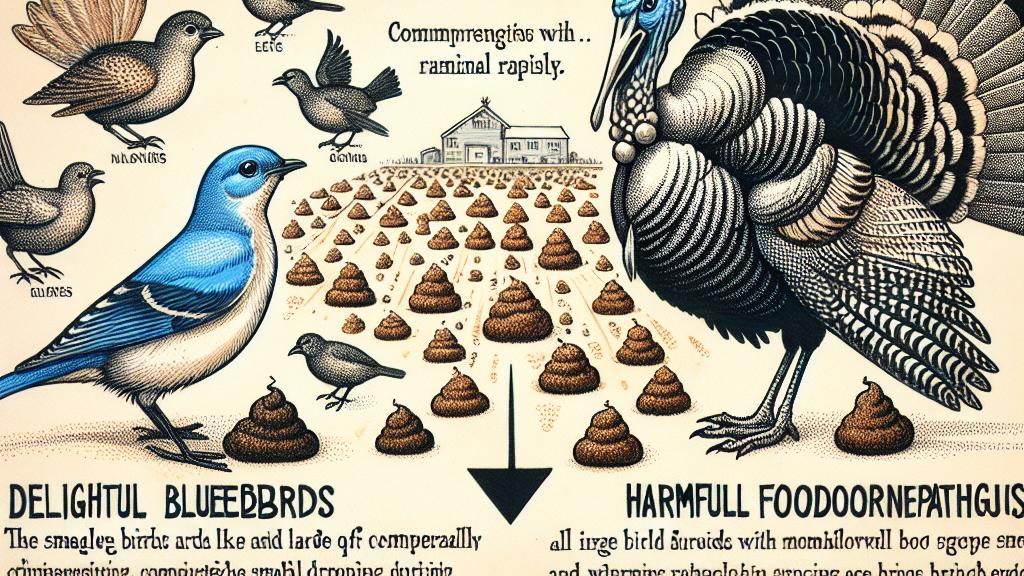Understanding Food Safety Risks from Bird Waste
Overview
- Small bird droppings celebrate an unexpected role in safe farming practices.
- Knowledge of poop size can lead to a significant uptick in crop yields.
- Creating a synergy between conservation efforts and agriculture promotes a healthier ecosystem.

Key Findings from Research
A remarkable study conducted by researchers at the University of California, Davis, delves deep into the often-overlooked consequences of bird droppings on crop safety. You might be surprised to learn that the feces of smaller birds, like the delightful bluebird, come with a minimal risk of harboring harmful foodborne pathogens when stacked against those from larger species, such as turkeys. The crux of their findings lies in the size; smaller bird droppings dry rapidly—this means that the chances of pathogens surviving are drastically decreased. Farmers can thus breathe a collective sigh of relief, becoming empowered to make informed decisions about harvesting based solely on the size of droppings they encounter rather than resorting to drastic measures to avoid wildlife.
Impact on Farming Practices
Imagine walking through a sprawling field, greens bursting with life, and knowing those small birds flitting through the air are actually allies in your farming journey. Statistics from the study indicate that a staggering 90% of birds around crops are small, showcasing the potential to increase crop yields by approximately 10% just by being smart about no-harvest zones. This isn't merely an academic point; it translates into real-world benefits where farmers can enjoy more produce and maintain biodiversity. They can thoughtfully avoid destructive practices that strip away natural habitats because they know the harmlessness of these small bird droppings. It puts the power back into the hands of farmers, enabling them to balance productivity and ecology effectively.
Broader Implications for Food Safety
It’s critical to recognize that foodborne illnesses are a pervasive threat; the CDC highlights that approximately 48 million Americans experience foodborne sickness each year. The notorious E. coli, for example, can wreak havoc on health, but the insights gleaned from this study provide a glimmer of hope. Understanding that small bird droppings pose negligible risks allows farmers and consumers to approach food safety with newfound confidence. This research advocates for a robust and proactive approach in agriculture, where food safety and environmental conservation go hand in hand. By fostering sustainable farming practices that embrace ecological diversity, we can cultivate not only a safer food system but also a thriving, diverse ecosystem that nourishes both people and the planet.

Loading...